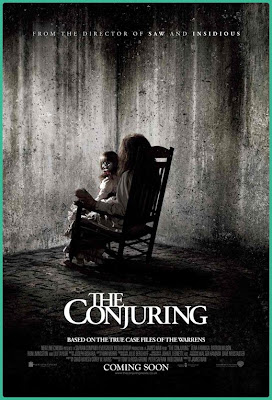Spielberg and the Dad Movie
When I think of Steven Spielberg, I think of my dad (I know, so precious). The director has created films that are considered modern classics which my father loves. The films are filled with themes that appeal to wide ranges of audiences including children, parents, families, employees, lost individuals and before anything else Americans.
For the most part, Spielberg’s movies are notably “feel good” movies (and poppa LOVES feel good movies). Although this may be coming across as condescending, this couldn’t be more of a compliment to Spielberg as he’s one of the most notable filmmakers to ever walk the earth. That said, The Post is very much so a “dad movie.”
When it comes to Spielberg, there’s a very thin line in regards to his representation of “classic cinema” coming across as hokey or cliched. For the most part, Spielberg is on the safe side when it comes to making a genuine picture which can be taken seriously in the modern age, but even Spielberg’s latest films (Lincoln, Bridge of Spies, The Post; three remarkable pictures back to back to back) are riddled with moments that feel like old Hollywood, that’s inescapable to the present day of cynical cinema.
The way characters speak; the mannerisms; the way they carry themselves according to the beats of the script; It’s all done in a cliche of what we think Hollywood films represent; so much as a throwback to the glory days of cinema that inevitably allow films such as Spielberg’s to feel like they’re literally classic films ripped out of the 1940s.
But what Spielberg does with his craft separates him from nearly any other filmmaker as he hones an energy from his films and somehow sparks the old feeling of whatever it means to represent true American cinema. He creates themes of adventure, excitement and purpose, bringing characters to life who wield his craft as a weapon to fight for a look and feel of what “film” actually is.
Spielberg is a living product of the post-WWII age of cinema; a boy longing for a relationship with his father and followed his childhood dreams of becoming the world’s greatest filmmaker. Spielberg is the poster boy for the American dream and that’s why the themes of his films run so linear, even in 2017. Sure these themes of hope and the great American dream of achievement worked in the 1970s because films were still only just budding beyond half a century’s worth of stagey, talky, black & white odes to theater.
It’s difficult to imagine the notion of what Spielberg films stand for in a modern day and age because on paper, his themes no longer feel like they can be taken seriously. And YET, Spielberg continues to commit to the dream and accurately represent the age of America we currently live in, because although The Post might be an ode to classic film; an All The President’s Men for the modern day, it is also very much so an accurate representation of the government we live among in 2017, whether Spielberg intended exactly this or not.
The Post is a respectable film indeed because it speaks directly to the political age we’re currently in. Living in a Trump America, if Three Billboards is the most relevant film of 2017 when it comes to the justice system, The Post is the most relevant when it comes to American censorship and freedom of speech.
What can basically be dubbed ‘Wiki-leaks: The Movie’ The Post is a brilliant representation of the importance of news and the literal ideas behind the words ‘free press.’ The themes behind big governments covering up dirty secrets among US history are themes that speak volumes for this country’s state of secrecy and ambiguous democracy.
While Hanks and Streep are no doubt the powerhouse couple of the film (if not all of 2017), Bob Odenkirk arguably steals the show. He, along with the rest of the gang at The Washington Post represent this sort of neck-tie, shoe-shined class to the American working people and they all perform with determination in executing their goals as their rights and civic duties to the country. Of course it all sounds corny but because it’s Spielberg, the film succeeds and nearly does a lap around much of 2017’s films.
Because even though the themes and characters are relevant to our country, The Post is also just a remarkably crafted film. Every aspect from the gorgeously lit cinematography to the production value in the costumes and cars is astounding. Say what you will about Spielberg getting hokey or too dad-friendly but the man’s attention to detail in his craft is arguably improving with each film he does.
No, The Post is not the best film of 2017 and partially because it lacks a sense of grandiose ambition. Due to how much the times have changed since the birth of Spielberg’s career, it seemingly becomes increasingly difficult for filmmakers to cater to a wide range of American audiences who either crave something mind-numbingly empty or desire something fresh and original. Unfortunately The Post does not truly cater to either party but it is a respectable throwback to old Hollywood.
If Spotlight was a reporter piece about exposing the atrocities and hypocrisies of the Catholic Church, The Post is a statement to the corrupt government we live in. At the end of the day, Spielberg has a voice, it is louder than ever, and it is designed for the American people. He truly is an auteur to cinema; to the American; to the “dad” in all of us, and with this film, as I crawl closer to my father’s age with each day, I finally begin to understand the appreciation for classic cinema in a modern age, rather than write these pieces off as “dad movies.”



